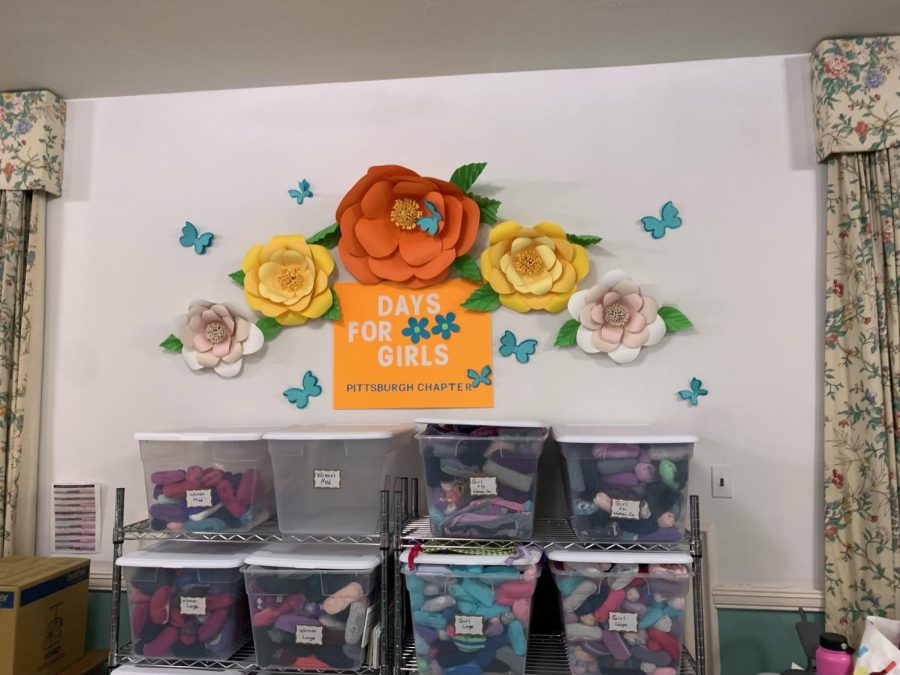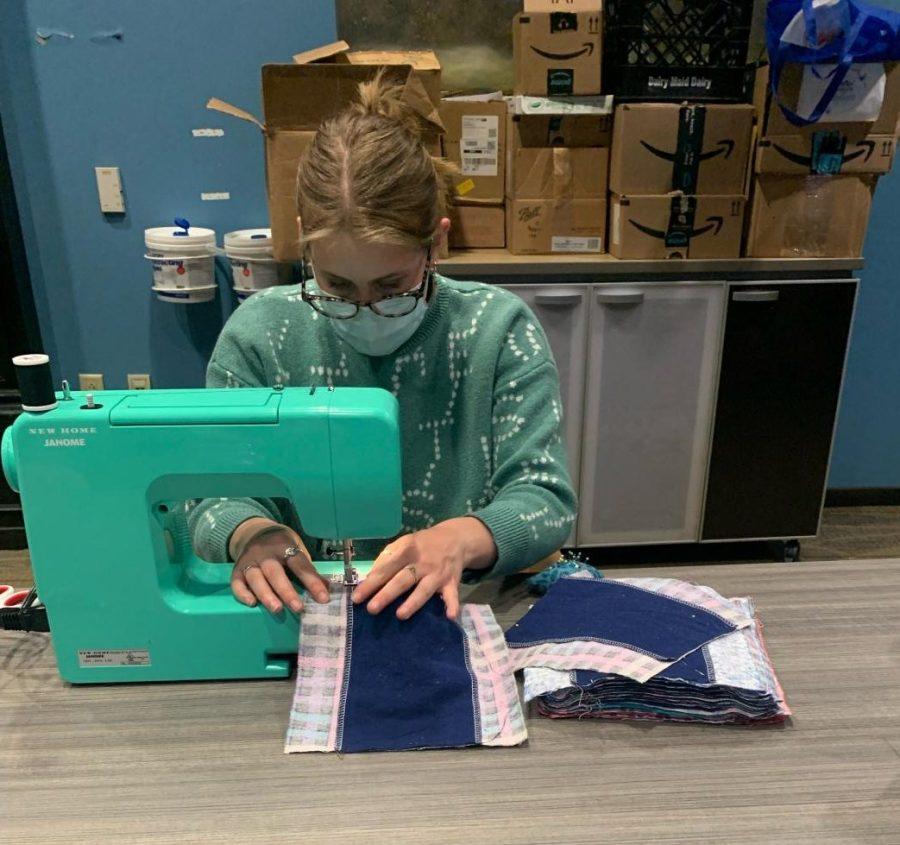Pitt organization works to destigmatize menstruation
Boxes of Days for Girls Pittsburgh chapter’s supplies at their Cathedral of Learning meeting room.
March 24, 2022
Claire Kelly, the co-president of Pitt’s Days for Girls club, said normalizing discussions of menstruation is essential to addressing period poverty.
“Period poverty is something that many non-menstruators do not know about because it does not directly affect them,” Kelly, a senior nursing major, said. “Once we are finally able to talk about periods, we will be able to create change and end period poverty.”
Days for Girls is an international nonprofit that seeks to increase access to menstrual supplies, elevate menstrual health, fight stigma through education and advocate for global policy change. Founded in 2008, CEO Celeste Mergens utilized her experience at an orphanage in Nairobi, Kenya to create a foundation that aids menstrual health. With chapters across different countries, Pitt’s Days for Girls focuses on making women’s health a priority on campus.
Rachel Lembeck-Edens, next year’s vice president, said it is important to note how period poverty affects those in parts of the world other than the United States.
“In other parts of the world, girls do not have access to education, and when they do, their studies can be disrupted because they miss a week of school due to their periods,” Lembeck-Edens, a sophomore psychology major, said. “Imagine missing a week of college because you had to stay in your dorm room until your period ended. This has serious effects on helping women become educated, get jobs in the future, and help the progress of their community.”
Like Lembeck-Edens, Isabella Wegner, a junior biological sciences major and vice president of the club, said she learned about period poverty through the club and wants to spread more awareness about women’s issues.
“I knew that I wanted to be involved in something regarding women’s health, as it has always been a passion of mine,” Wegner said. “It was when I found Day for Girls that I learned about period poverty and became invested in the cause.”
According to Kelly, Day for Girls has a variety of different types of meetings that stem from social-oriented to service projects.
“On Mondays, we rotate between educational and social meetings, ” Kelly said. “Our educational meetings are meant to be a space where we can discuss menstruation and other topics to normalize them.”
Alternating between social and educational meetings, Reagan Russell, the social media co-chair and a sophomore molecular biology major, said a wide variety of topics are discussed at meetings.
“Last semester, I gave a talk on Polycystic Ovarian Syndrome and the impact that it can have on one’s self esteem,” Russell said. “Another recent topic of an educational meeting that I found really interesting was menstruation and sustainability. It was really meaningful to learn small ways we can change our habits around menstruation to make a difference in the world around us.”
Twice a week, Day for Girls conducts sewing hours, which are open to anyone, to create reusable liners for shields.
“The shields look like a traditional winged pad with snaps on the side to wrap around the underwear and pockets on the ends, which hold the liners,” Wegner said. “They are designed to look like washcloths, so they can be hung up outside without shame or embarrassment.”
Lembeck-Edens said the sewing hours at the O’Hara Student Center are one of her favorite parts of the club.
“Because of COVID, we were not able to build up this part of the club until this semester,” Lembeck-Edens said. “But now that it is here, we are so excited because it is really the heart of the Day for Girls organization.”
The club is working to better promote period equity on campus, including providing more accessibility to period products. Kelly said the University has a good base to begin promoting period equity, but they could always do better.
“Pitt has many bathrooms on campus that have free tampons and pads, but more bathrooms should have these free products and there should be a better system to make sure they are always stocked,” Kelly said. “Schools in general need better education about menstrual health so it becomes a normal topic of discussion in health.”
Lembeck-Edens said both Pitt and the Office of Sustainability are working hard to make period products more eco-friendly, even though sustainable and also affordable menstrual products are often not discussed enough.
“In reality, the majority of students on Pitt’s campus are women and on a single day during someone’s period, three to four pads or tampons can be used and the plastic wrapper they come in are becoming waste,” Lembeck-Edens said. “Our club works hard to destigmatize periods and to provide reusable menstrual products to women and girls.”
Russell said Days for Girls is an important and equitable cause as menstruation impacts every aspect of one’s life, from health to livelihood.
“I think that working at removing the stigma around menstruation and trying to make every menstruator have access to the resources they need, is such a pressing issue,” Russell said. “It is so gratifying to be able to work towards menstrual equity in this great organization.”









